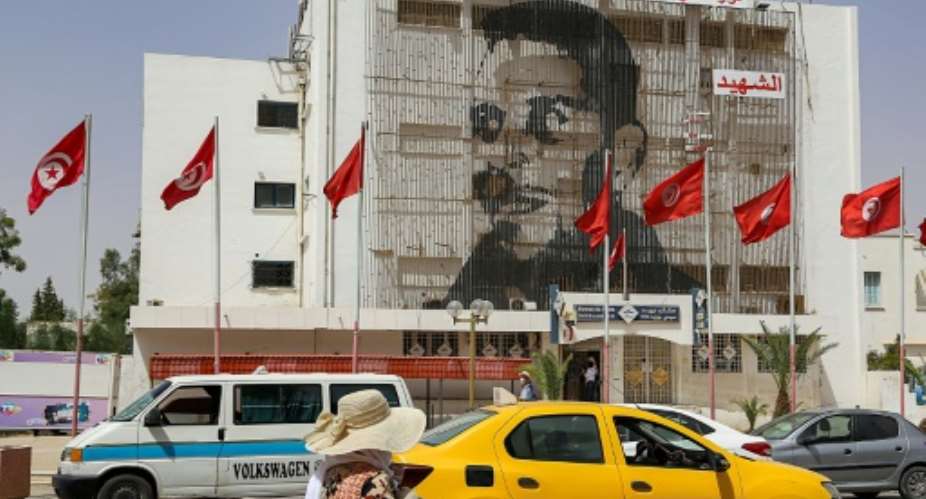Tunisia's President Kais Saied said Thursday he would move the official anniversary of the country's revolution, a symbolic shift indicating that the revolt is unfinished.
Tunisia's uprising broke out on December 17, 2010, when Mohamed Bouazizi, a vegetable salesman angered by police harassment, set himself ablaze in the marginalised rural town of Sidi Bouzid.
Four weeks later, after vast nationwide protests, veteran dictator Zine El Abidine Ben Ali fled into exile on January 14, which later became an official day of remembrance and a public holiday.
But Saied told his cabinet on Thursday that he would order the holiday moved to December 17, the day "the revolutionary explosion burst out of Sidi Bouzid".
"Unfortunately the revolution was usurped," he added. "The people were even prevented from expressing their desires and slogans."
Saied, who sacked the government and seized wide-ranging powers on July 25, wants to radically change the form of Tunisian governance and sees the revolution as a process that is still underway.
Since 2011, January 14 has been a public holiday across Tunisia -- except in Sidi Bouzid, which marks the revolution every year on December 17 in homage to Mohamed Bouazizi.





 Lay KPMG audit report on SML-GRA contract before Parliament – Isaac Adongo tells...
Lay KPMG audit report on SML-GRA contract before Parliament – Isaac Adongo tells...
 Supervisor remanded for stabbing businessman with broken bottle and screwdriver
Supervisor remanded for stabbing businessman with broken bottle and screwdriver
 NDC watching EC and NPP closely on Returning Officer recruitment — Omane Boamah
NDC watching EC and NPP closely on Returning Officer recruitment — Omane Boamah
 Your decision to contest for president again is pathetic – Annoh-Dompreh blasts ...
Your decision to contest for president again is pathetic – Annoh-Dompreh blasts ...
 Election 2024: Security agencies ready to keep peace and secure the country — IG...
Election 2024: Security agencies ready to keep peace and secure the country — IG...
 People no longer place value in public basic schools; new uniforms, painting wil...
People no longer place value in public basic schools; new uniforms, painting wil...
 'Comedian' Paul Adom Otchere needs help – Sulemana Braimah
'Comedian' Paul Adom Otchere needs help – Sulemana Braimah
 Ejisu by-election: Only 33% of voters can be swayed by inducement — Global InfoA...
Ejisu by-election: Only 33% of voters can be swayed by inducement — Global InfoA...
 Minority will expose the beneficial owners of SML, recover funds paid to company...
Minority will expose the beneficial owners of SML, recover funds paid to company...
 Prof. Opoku-Agyemang has ‘decapitated’ the NPP’s strategies; don’t take them ser...
Prof. Opoku-Agyemang has ‘decapitated’ the NPP’s strategies; don’t take them ser...
